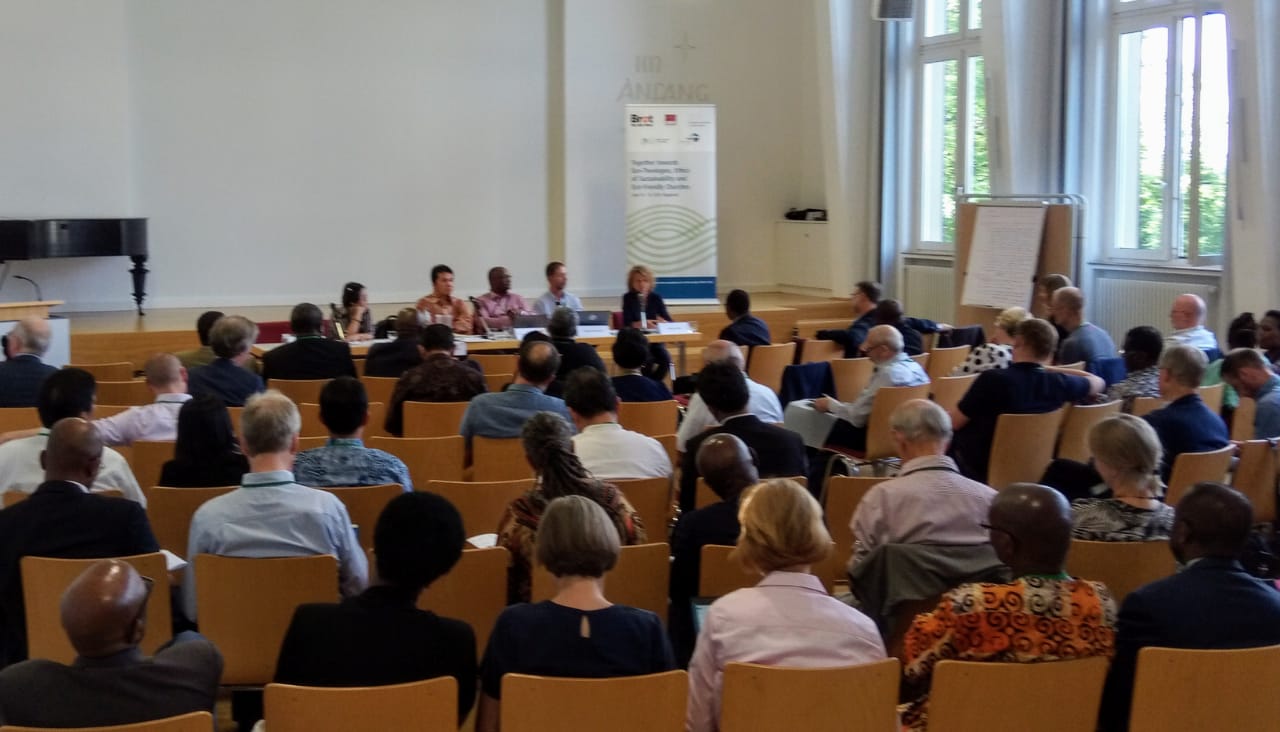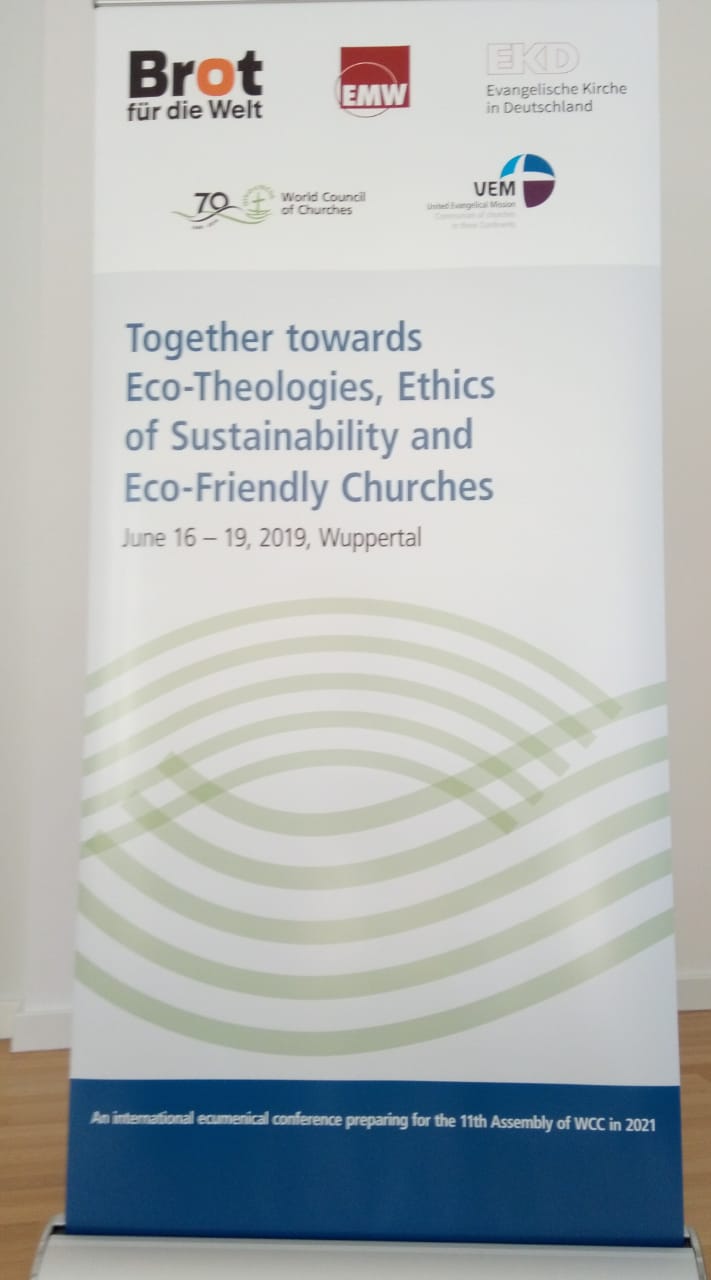Eco-theology Conference: 16-19 June. Wuppertal, Germany
- Published:

Report by Kate Davies
“Together towards Eco-theologies, ethics of sustainability and eco-friendly churches”, an international ecumenical think tank of 55 theologians (mostly Christian academilared SAFCEI to be one of BftW’s “flagship programmes”.
The conference was located in Wuppertal, Germany, the home of the historic 1934 Barman declaration. This significant human rights document was a Christian response to the growing totalitarian and racist ideology gaining momentum in Hitler’s fascist Germany. It has become a foundational document for the reformed Churches, affirming that the Church should be undergirded by biblical principles and remain church and not conform to the political and ideological demands of the time. (The Barman declaration informed the South African Belhar Confession of the Dutch Reformed Mission Church in its resistance and struggle for liberation against apartheid in 1982).
Recognising the gravity of the current ecological crisis and the biblical values underpinning the Barman declaration, this 2019 conference aimed to make a similar call to global Christianity to respond to climate disruption and environmental destruction. The declaration prepared by conference participants, calls on the church to own the ethical principles of sustainability and sufficiency and take urgent action in a world blinded by greed and unbridled growth.
The conference emphasized the need for religion and science to inform each other. It mapped current global and regional eco-theological initiatives and, in different streams, explored creation theology, economics of growth, ecumenical and interreligious cooperation and ecofeminism. Before participatory work on the final declaration, smaller interest groups looked at the practical dimensions of ecumenical eco-ethics for the 21st century through greening churches, leadership education, liturgy and worship and the ethics that underpin sustainability.
Geoff and I shared a session on eco-faith activism in a multi-faith context, based on SAFCEI’s work, and believe we were able to offer a distinctive perspective and contribution. Given the gravity and urgency of the global ecological crisis, we highlighted the importance of expanding the Christo-centric view, encouraging co-operation and practical partnerships with other faith traditions. Geoff also made a plea for the conference to replace mild complacent language with that of a crisis.
In a small group, we shared the FLEAT video which was well received. We emphasized the need for a more practical model that could engage, inform and involve faith leadership on the ground in addition to academic theorising which takes longer to translate into grassroots agency and action. There are plans to publish the conference proceedings and recommendations will be sent to the WCC in preparation for the 11th Assembly to be held in 2021.

Who we are

SAFCEI (Southern African Faith Communities’ Environment Institute) is a multi-faith organisation committed to supporting faith leaders and their communities in Southern Africa to increase awareness, understanding and action on eco-justice, sustainable living and climate change.
Featured Articles
-

South Africa: Who Ends Up Paying If DMRE Cooks the Price of Nuclear Power?
-

South Africa’s nuclear energy expansion plans continue to draw criticism, environmental NGOs chew over legal challenge
-

Earthlife Africa and SAFCEI respond to latest unsettling nuclear news regarding the ministerial determination
-

Open Wing Alliance Africa (Virtual) Summit 2023
-

The Green Connection and SAFCEI respond to energy minister's divisive and deflecting comments
-

Job Vacancy: FLEAT Coordinator







